Define emotional stability
Emotional Stability
As life continues to function through the current global pandemic, something unlike most of us have seen before, everyone is vulnerable to a degree of emotional stress. Emotions are at the centre of everything we do. Controlling your thoughts, decisions and behaviours. Ever increasing levels of uncertainty brew higher levels of anxiety which can lead our emotions all over the place. Which is why during this pandemic emotional stability is ever more important.
What is Emotional Stability?Emotional stability refers to a person’s ability to remain stable and balanced. Being emotional stable means, you are able to stay calm during stressful periods and tend not to experience many negative feelings. So, when life throws things your way you are better equipped to remain productive and capable through it.
The power of your emotions is unrivalled, as earlier mentioned they influence your behaviours, thoughts and decision making. For example, you pass your driving test. This gives you immense feeling of happiness and excitement. As a result of your feelings everything seems so much better, a new sense of freedom to travel. And since you just passed your driving test and your all happy you decide to go out and celebrate with your friends.
This effect isn’t exclusive to positive emotions, negative emotions also have an impact on us. Anger, fear, resentment, frustration and anxiety are all emotions people regularly experience. These negative emotions can create extra stress and can impact your decisions, behaviours and thoughts.
Why is emotional stability important?ConfidenceCriticism is an important part of life; it reminds us that not everyone is perfect, and we all have room to grow. Despite that when we receive it you can’t help but feel deflated or hurt when you receive it.
When you are emotionally stable, you feel more comfortable about yourself and despite the disappointment you will continue to reach your goals having the confidence to move forward.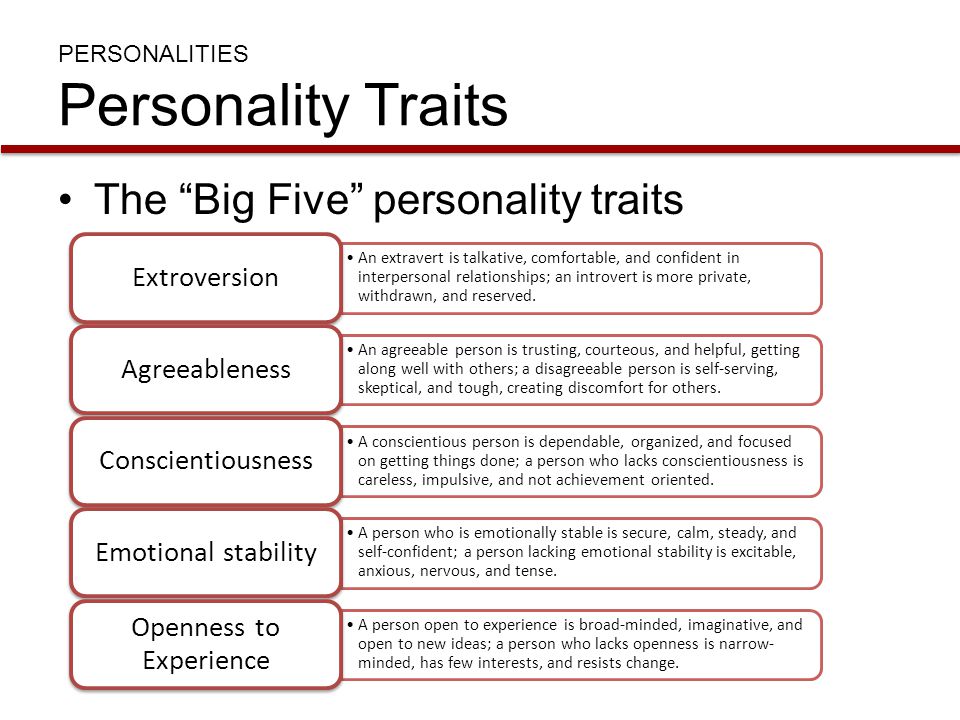
In everyday life there is always the chance for a curveball, look at the current pandemic no one saw it coming and it has had a devastating impact on many people. It is in these moments when anxiety and panic can take over.
Those with high levels of emotional stability will maintain their focus throughout the difficult and tough times. Ensuring they keep their emotions under wraps and remain in control. Allowing your continued productivity and focus throughout the tough times to come up with a solution.
PositivityNo one enjoys being pushed out of their comfort zone, when this happens people tend to experience negative emotions such as anxiety and fear. You also tend to lack confidence or begin to doubt yourself. These emotions tend to bring the worse out in people.
Those that are emotionally stable prevent those negative emotions and thoughts from taking over, and instead are able to see the light at the end of the tunnel. Maintaining a positive outlook for the situation, knowing that whatever is going on will pass and remaining positive you will overcome the current challenge.
Maintaining a positive outlook for the situation, knowing that whatever is going on will pass and remaining positive you will overcome the current challenge.
Emotional stability is one of the characteristics that can be difficult to judge without some form of psychometric assessment. A good personality assessment will cover not only emotional stability but also the sub scales for a real in-depth analysis of this trait among candidates.
Life is full of challenges for us all to face, some we can prepare for but others that inevitably catch us off guard. It is in these moments that emotional stability really shines.
To learn more about the psychometric tests we provide, use the following link: http:www.inpsyght.co.uk/our-tools/
2.5 Emotional Stability | Soulbus-e-Coach
The ability to deal with psychological stress. In an intercultural context one is confronted with different cultural and interpersonal situations that must be coped with.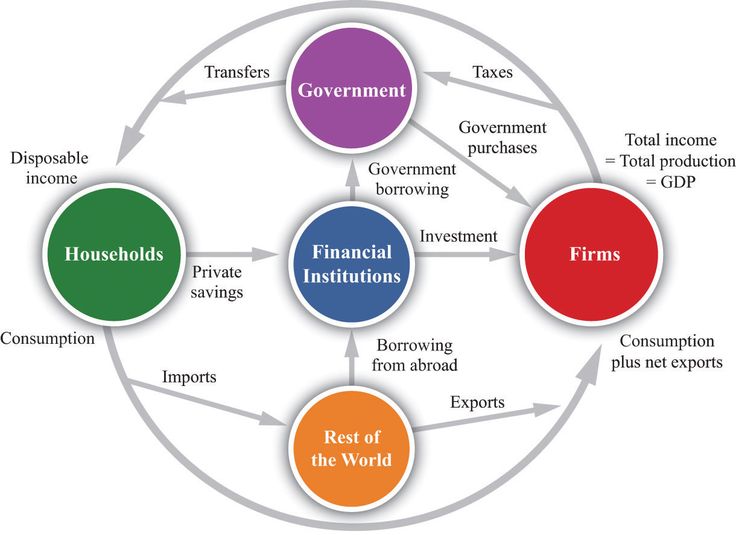
How this module Emotional Stability is build up
First of all you have to get acquainted with the concept of emotional stability; what is it and on what is it based.
Secondly, you have to be aware about your own feelings, thoughts and behaviour by doing small tests.
Third, emotional stability has to contribute to your competences in teaching or mentoring students from another country and culture, with other values and norms than you have. How can you ‘understand’ empathy of individuals different than ourselves?
To reach these goals, you read theories; view video’s, make assignments for yourself and discuss cases on a forum with your peers.
The order of the Chapter:
- Indicator chart.
- Emotional Stability, the concept.
- Emotional Stability, self test
- Emotional Intelligence.
Indicator chart
Concept of Emotional Stability
Emotional stability is the capacity to maintain ones emotional balance under stressful circumstances.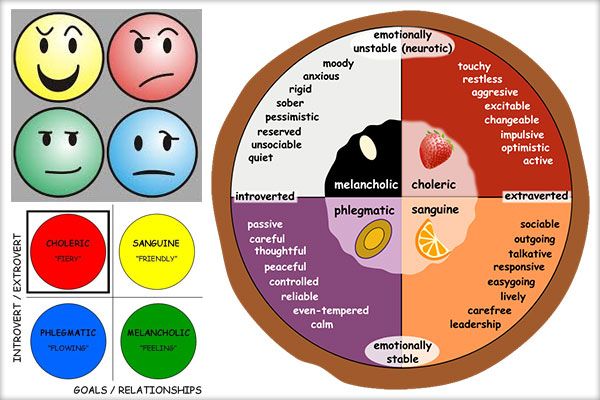 It is the opposite of emotional instability and neuroticism.
It is the opposite of emotional instability and neuroticism.
Emotionally stable persons tolerate minor stresses and strains of day to day living without becoming emotionally upset, anxious, nervous, tense, or angry. They are able to maintain composure under minor emotional stress. They are fairly constant in their basic mood, and they generally revert quickly to that state following those occasions when they have experienced considerable stress or have been exceptionally provoked. The unstable person, on the other hand, is subject to fairly wide, frequent, and often unpredictable mood shifts that may swing from pole to pole 1.
Emotional stability enables the person to develop an integrated and balanced way of perceiving the problems of life. This organizational ability and structured perception helps one to develop reality-oriented thinking, judgment and evaluation ability. One develops feelings, perceptions and attitudes that help in understanding the realities of life and conditions and circumstances that create miserable situations in life.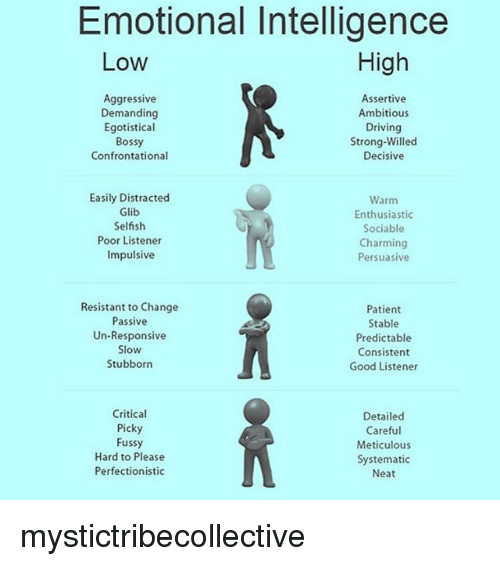 Such understanding helps one promote high ego strength2.
Such understanding helps one promote high ego strength2.
Emotional stability is an important indicator for multicultural competences. Competent teachers and mentors are expected to teach and supervise students / trainees from different cultural backgrounds and are able to improvise as the situation requires. Especially in international classrooms or groups, with a mix of cultural backgrounds, it can be hard to deal in an effective way with stressful events and situations. Teachers and mentors need the capacity to maintain ones emotional balance under these stressful circumstances and stay far away from emotional instability or neuroticism.
This balance is playing a role in several natures and emotions, like pessimism/optimism, anxiety/calmness, aggression/tolerance, dependence/autonomy, emotion/logic, apathy/empathy.
Emotional Intelligence
The quality of the education and mentoring of foreign students/trainees depends to great extent on the professional competence and emotional stability of teachers/mentors. Emotions like frustration, unhappiness, dissatisfaction, reflect in a negative way on the students and trainees.Therefore it is important to control emotions in a proper way.
Emotions like frustration, unhappiness, dissatisfaction, reflect in a negative way on the students and trainees.Therefore it is important to control emotions in a proper way.
Emotions tend to direct to short-term decisions, whereas decisions made with our rationality will have longer term values. Emotional intelligence is an important feature to keep good balance between emotions and ratio. Emotional intelligence helps to minimize the negative impact of emotions on failure. This shows the importance of emotional intelligence.
Read:
– ‘A study of emotional intelligence of higher secondary school teachers of Madhya Pradesh’
– ‘Before you say ‘I Do’,Ray Pritchard (2008) p52/53
Psychological and emotional stability
Psychological stability, emotional stability, stress resistance are concepts that complement each other and form a personality system.
Psychological stability is a socio-psychological characteristic of a person, which consists in the ability to endure the extraordinary situation without any damage to oneself and overcome its consequences with the help of methods that improve the personality, increase the level of its adaptation and social maturity.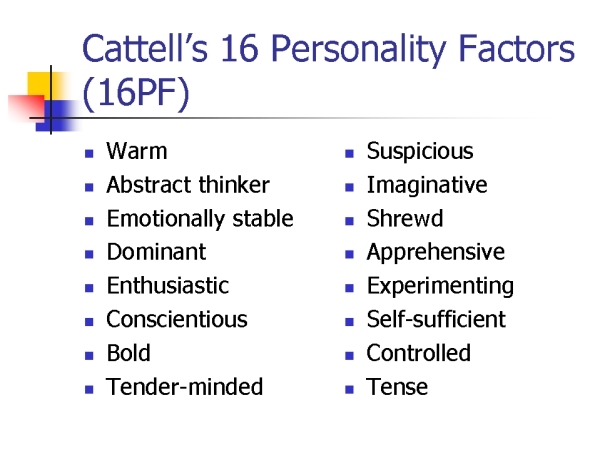 In fact, this characteristic means the presence of an adaptive potential of the individual, which determines its ability to overcome difficult situations. nine0005
In fact, this characteristic means the presence of an adaptive potential of the individual, which determines its ability to overcome difficult situations. nine0005
In modern psychological science, attempts are being made to holistically comprehend the personal characteristics responsible for successful adaptation and coping with difficult life situations.
It should be noted that researchers do not have a common opinion regarding the leading component of psychological stability.
Some authors consider the cognitive component to be the leading one, others - the emotional and volitional (stress resistance, emotional-volitional stability) or motivational components. Some researchers propose to consider a set of qualities that ensure a person's resistance to extreme factors. An integrative approach to considering this complex quality is the most promising. nine0005
For example, A.G. Maklakov introduced the concept of "personal adaptive potential", which determines a person's resistance to extreme factors. It includes the following characteristics: neuropsychic stability, the level of development of which provides tolerance to stress; self-assessment of the individual, which determines the degree of adequacy of the perception of the conditions of activity and one's capabilities; a sense of social support, causing a sense of self-worth to others; the level of personality conflict; experience of social communication. The author considers all of the listed characteristics to be significant in assessing and predicting the success of adaptation to difficult and extreme situations, as well as in assessing the rate of restoration of mental balance. nine0005
It includes the following characteristics: neuropsychic stability, the level of development of which provides tolerance to stress; self-assessment of the individual, which determines the degree of adequacy of the perception of the conditions of activity and one's capabilities; a sense of social support, causing a sense of self-worth to others; the level of personality conflict; experience of social communication. The author considers all of the listed characteristics to be significant in assessing and predicting the success of adaptation to difficult and extreme situations, as well as in assessing the rate of restoration of mental balance. nine0005
G.S. Nikiforov considers psychological stability as a complex quality of a person, the level of which is manifested in her professional activity, in the reliability of an employee. Psychological stability, in his opinion, is a synthesis of individual qualities and abilities, which combines balance, stamina, stability and resilience.
Balance is the ability to keep the level of tension without going beyond the acceptable (without leading to destructive stress).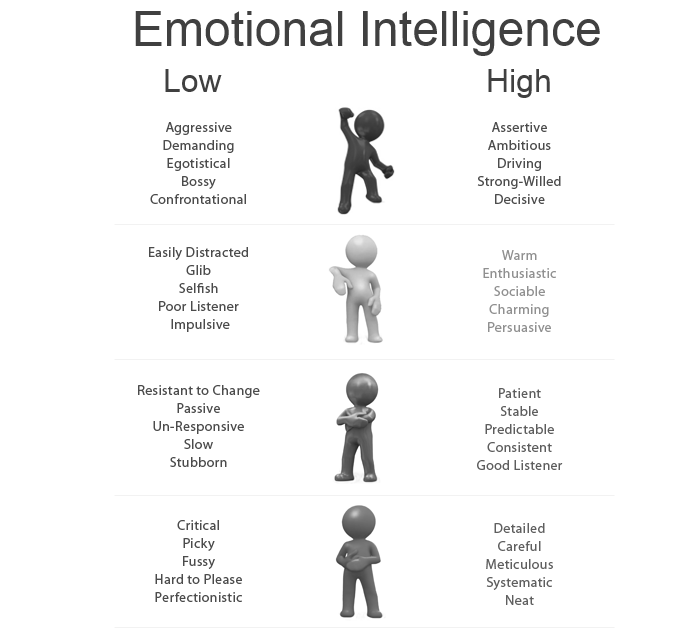 nine0005
nine0005
Resilience implies the ability to withstand difficulties while maintaining faith in situations of frustration, and stability implies a constant level of mood.
Resilience lies in the ability of the individual to maintain freedom of behavior and lifestyle choices, as well as freedom from any kind of addiction.
Various aspects of psychological stability are also reflected in foreign science. nine0043 So, for example, studying the different impact of stressful life events on the illness of leaders, S. Kobasa proposed the concept of
Hardiness - a personality trait, which in Russian literature is translated as endurance, stamina or vitality, courage, courage, strength, audacity. In the future, the concept of Hardiness was further developed in the works of S. Maddy, where it is considered as an integrative quality of a person, which is an indicator of a person's mental health. nine0005
nine0005
Hardiness consists of three components: commitment, control, and ability to accept a challenge.
Obligation is a tendency to devote oneself completely to one's work, whatever it may be, in other words, the semantic and goal orientation of a person. Inclusion is an important definition of oneself and the world around, as well as the nature of their interaction. It gives strength, motivates a person to implementation, leadership, a healthy lifestyle and behavior, and also makes it possible to feel significant and valuable enough to be fully involved in solving problems, despite the presence of stressful factors and changes. nine0043 Control is the tendency to think and act as if there is a real possibility of influencing the course of events. This is a quality that motivates to find ways to influence the results of stressful changes and does not allow a person to fall into a state of helplessness and passivity.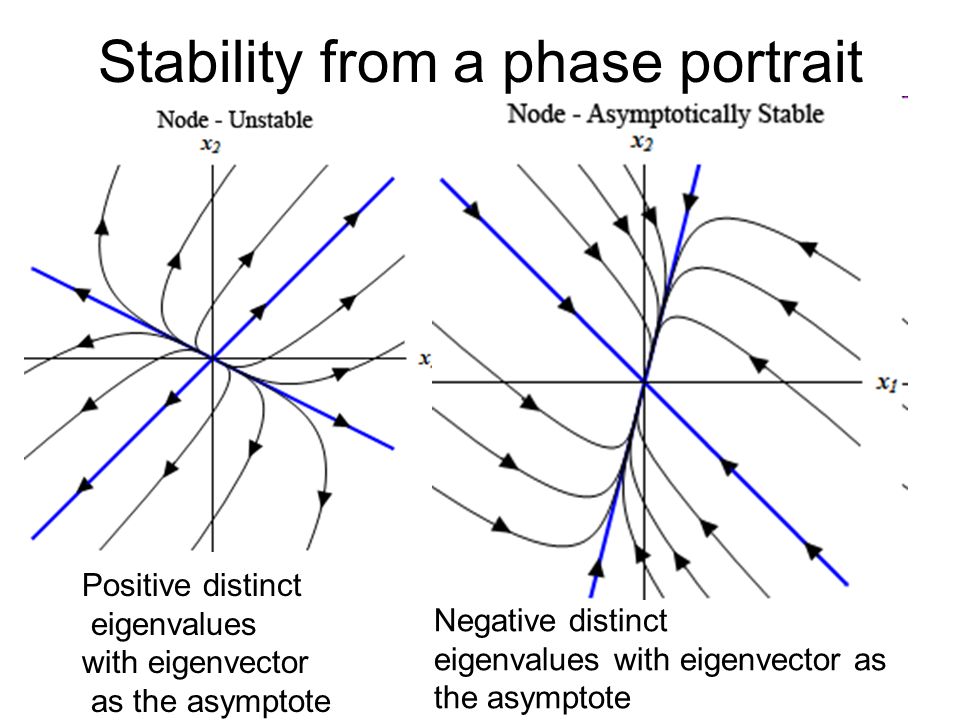 Having control, a person is sure that any difficult situation can be transformed so that it will be consistent with his life plans, it will be useful to him in some way. Evaluating even tragic events, a person reduces their significance and thereby reduces the psycho-traumatic effect. nine0005
Having control, a person is sure that any difficult situation can be transformed so that it will be consistent with his life plans, it will be useful to him in some way. Evaluating even tragic events, a person reduces their significance and thereby reduces the psycho-traumatic effect. nine0005
Challenge (ability to accept a challenge) refers to the perception of danger as a challenge that marks the next turn of a changing life that encourages a person to continuous growth. This is the ability to experience any event as a stimulus for the development of one's own capabilities. This component of Hardiness helps a person to remain open to the environment and society. It consists in the perception by a person of a life event as a challenge to himself personally and upcoming trials. nine0005
Thus, there is a whole range of personal qualities that contribute to adaptive, non-traumatic experience of extreme situations and ensure the success of overcoming their consequences, which can be characterized as an integrative personality characteristic - psychological resistance to extreme situations.
In modern foreign studies, Hardiness is considered an important factor leading to reliable and sustainable results of professional activity, especially for extreme professionals. For example, the results of a study of 405 fire communities in Madrid showed that Hardiness can be a deterrent between occupational stressors and burnout. nine0005
The activities of firefighters are characterized by a high level of neuropsychic tension, which is associated with the presence of a real vital threat, with the impact of extreme factors of the situation, as well as the need to make decisions in conditions of novelty, uncertainty, lack of time and high responsibility.
As the difficulty of the situation increases, the effectiveness of professional activity depends to a greater extent on the psychological stability of a specialist, which, along with professional skill, which implies knowledge, skills and behavior in extreme situations, determines the effectiveness and reliability of the activity of an extreme profile specialist.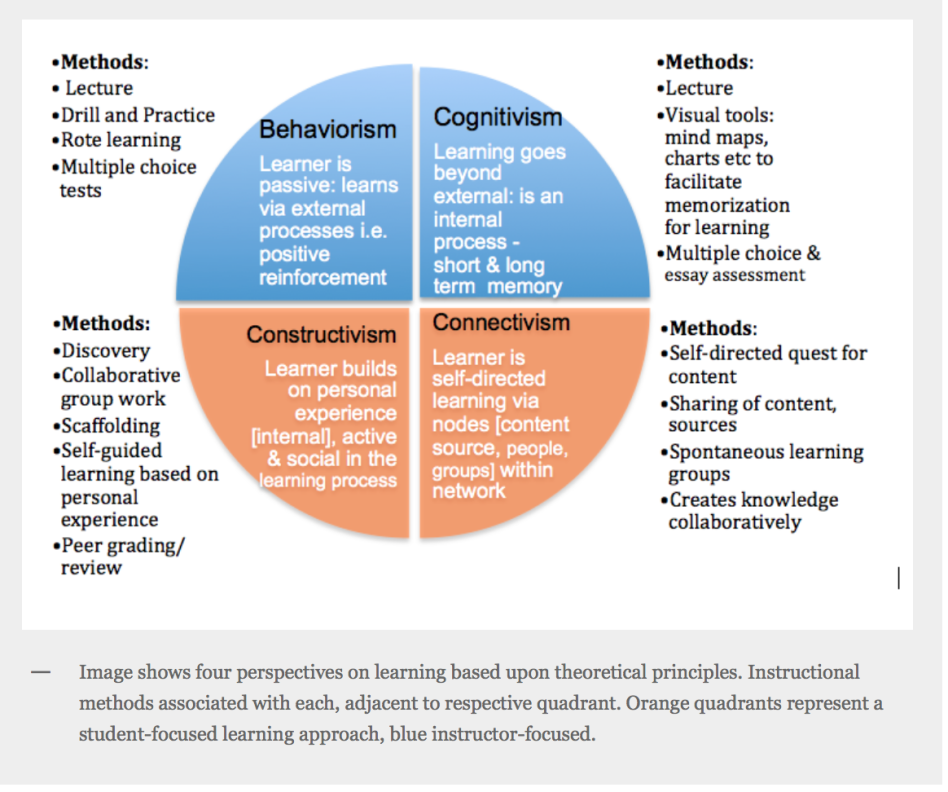 nine0005
nine0005
Psychological stability, which is a generalized mode of functioning and includes cognitive, emotional and behavioral components, should be manifested at all stages of the performance of the professional task of firefighters, which can be conditionally divided into three: preparatory, main and final.
The preparatory phase includes signaling a fire and going to the scene of an emergency. A feature of the preparatory stage is the suddenness and uncertainty of information. The main task of a specialist at this stage is to prevent a state of anxiety and bring the level of neuropsychic stress to an optimal level - a state of combat readiness. nine0005
The main stage includes direct professional actions aimed at saving people and material objects. The features of this stage are: danger, uncertainty of the situation, severe lack of time. The conditions of the situation impose increased requirements on the cognitive abilities of a specialist, which is expressed: in an objective assessment and analysis of the situation, in the search for unknown or conflicting information, in decision making.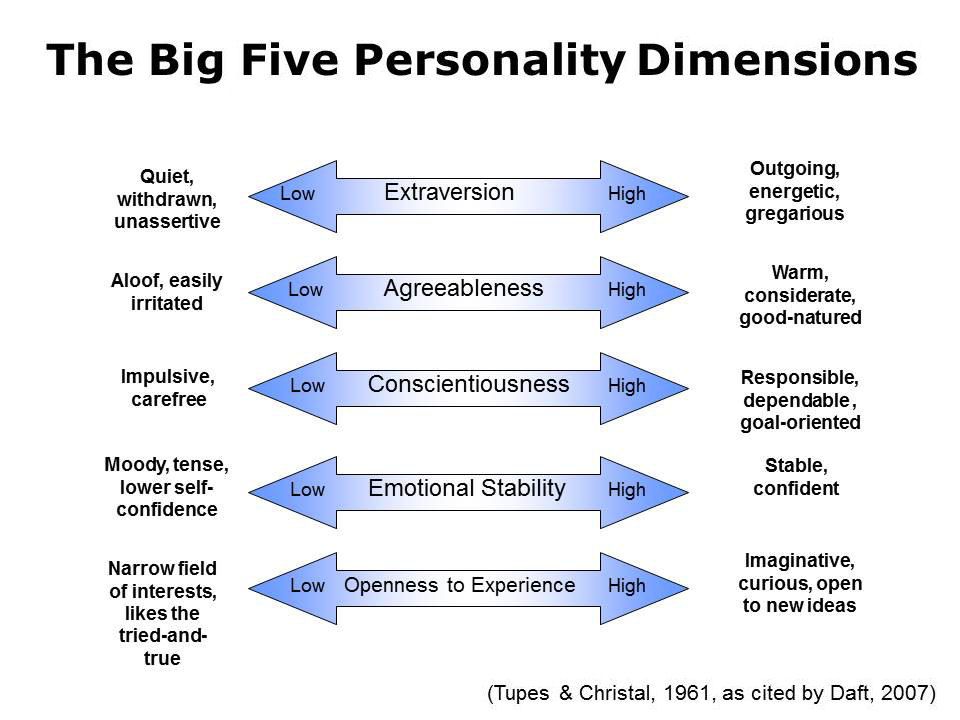 In the behavioral sphere, psychological stability at this stage is manifested in active actions aimed at changing the situation using non-specific forms of activity, i.e. actions that provide the most effective result in a particular emergency situation, flexibility and speed of transition from one task to another. Thus, the main task of specialists at this stage is to mobilize their resources to fulfill their professional duty. nine0005
In the behavioral sphere, psychological stability at this stage is manifested in active actions aimed at changing the situation using non-specific forms of activity, i.e. actions that provide the most effective result in a particular emergency situation, flexibility and speed of transition from one task to another. Thus, the main task of specialists at this stage is to mobilize their resources to fulfill their professional duty. nine0005
At the final stage, an important task is to restore emotional balance with the help of self-regulation techniques and constructive transformative coping strategies.
Thus, psychological stability is the quality of a specialist's personality, which consists in the ability not to succumb to unfavorable circumstances of the tasks being solved, not to reduce the quality of performing professional actions under their influence.
The level of psychological stability of a specialist, on the one hand, is manifested in the reliability of professional activity. On the other hand, successful professional activity for many is the basis for a full-fledged experience of self-realization and satisfaction with life in general, which in turn increases the level of psychological stability. nine0005
On the other hand, successful professional activity for many is the basis for a full-fledged experience of self-realization and satisfaction with life in general, which in turn increases the level of psychological stability. nine0005
Resilience in a Stress Model
One of the first and most compelling studies based on the resilience construct was a longitudinal study of managers at a large Illinois Bell Telephone Company (IBT).
The stressful situation in the company arose as a result of changes in the legislation regulating the telecommunications business in the United States. As a result of these changes, all enterprises in the industry were facing significant staff reductions within a few months, which was known in advance. This situation provoked reactions of distress, somatic illnesses and mental disturbances in many workers, awaiting the decision of their fate. A study conducted by Muddy found a clear inverse relationship between the severity of hardiness components and the likelihood of a serious illness within a year after the onset of a stressful situation in company managers.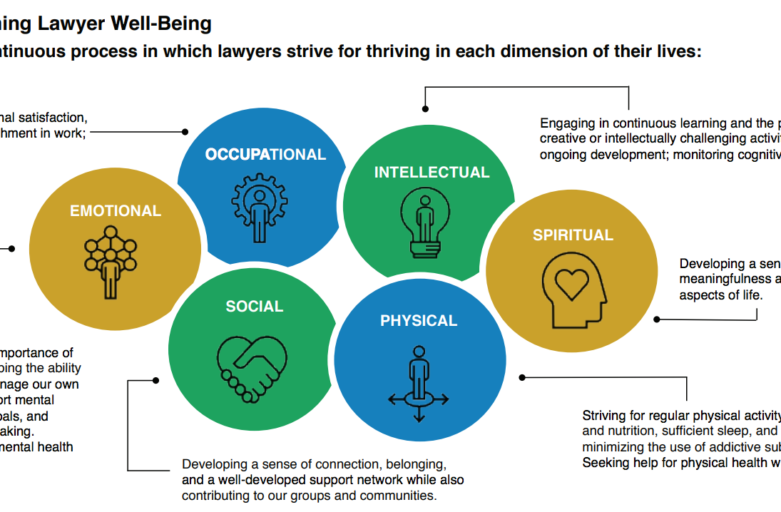 nine0005
nine0005
With a low severity of all three components of hardiness, the probability of disease was 92.5%, with a high level of one of the components - 71.8%, with a high level of two components - 57.7%, and with a high level of all three components
-1.1%.
How does resilience work? How does it help you overcome stress? According to the psychology of stress, all psychological factors affect stress in one of two ways (see Fig. 1): they can influence the assessment of the situation (“Is it a threat to me?”, “Can I cope with it?”), and can influence the reaction of a person, his behavior, overcoming difficulties. nine0005
Emotional stability as an indicator of the psychological health of the future teacher
The article considers the concept, essence, main components of emotional stability, and also suggests that it affects the psychological health of future teachers.
Keywords Keywords: educational institution, teacher, emotional stability, educational process, psychological health.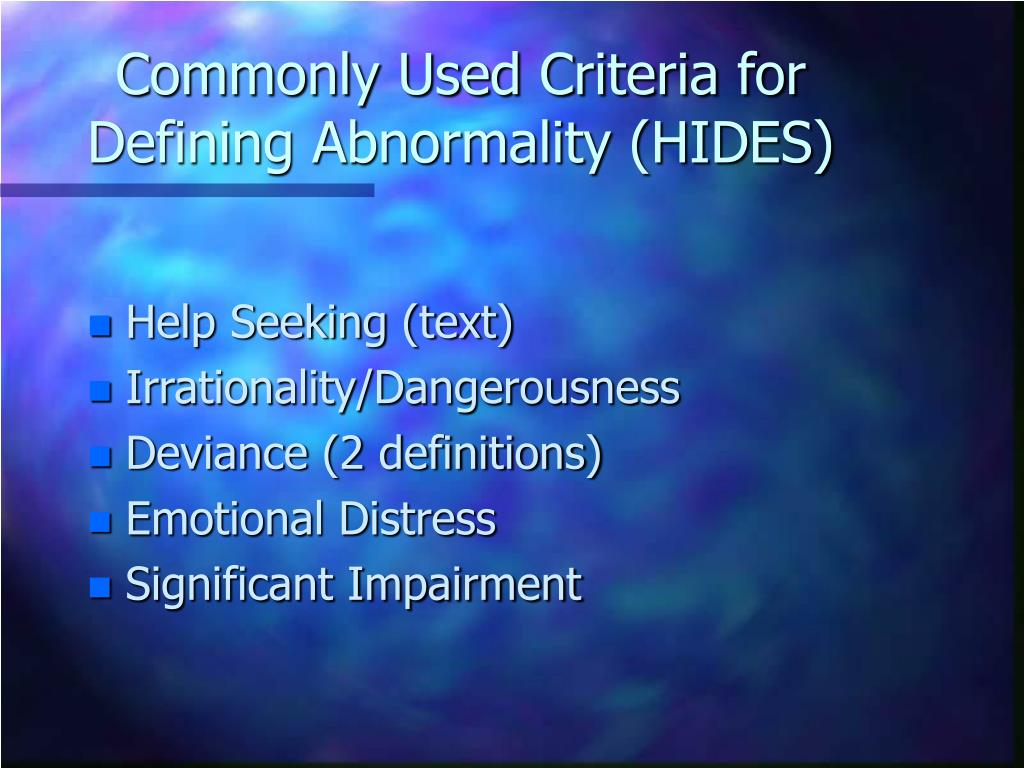 nine0023
nine0023
The articles considers the concept, essence, and main components of emotional stability, and also suggests that it affects the psychological health of future teachers.
keywords: educational institution, teacher, emotional stability, educational process, psychological health.
Emotions are a unique creation of nature, more universally realized in man. Emotions play the role of an intermediary in the transformation of material external and internal influences into psychological energy. nine0005
The emotional stability of a person is understood as an integrative property that contains a system of “emotional, volitional, intellectual, motivational components of mental activity and the ability to suppress emotional reactions.
The main criterion of emotional stability for many scientists is the effectiveness of activity in an emotional situation. OA Sirotin includes in the definition of emotional stability the ability of a person to successfully solve complex and responsible tasks in a tense emotional environment6, p. 54. nine0005
54. nine0005
In this statement, emotional stability is essentially taken to be the ability to suppress emotional reactions, i.e., “willpower”, manifested in patience, perseverance, self-control, endurance (self-control), leading to stability in performance.
There are four main approaches to the consideration of emotional stability, which are implemented in the studies of some psychologists: the first approach takes the main psychological factors of emotional stability beyond its boundaries and sees them initially in volitional qualities, and the second approach defines it as a consequence of the integration of various mental processes and phenomena, then the third approach in the study of emotional stability has in mind the reserves of neuropsychic energy, the fourth approach - initially determines the qualities and properties of the emotional process itself in a difficult situation for a person1, p.90.
The decisive role in the behavior of the psychological health of the teacher is played by the ability to behave in accordance with the situation and show adequate emotions, which is a difficult task for most people. Accordingly, this cannot be done without the formation of psychological health.
The phrase "psychological state of health" was introduced into the general scientific dictionary by I. V. Dubrovina, she highlights the diversity of this term, which combines two areas - medical and emotional. The psychological state of health, according to I. V. Dubrovina, manifests itself in a combination of individual qualities, namely stress resistance, effective self-realization, and is characterized by a well-formed reflection [5, p.189].
According to O. S. Vasilyeva and F. R. Filatov, psychological health combines aspects of the inner world and ways of external manifestations of the personality into one whole [2, p. 211].
Thus, psychological health is a complex of individual characteristics of a person, which are prerequisites for stress resistance, adaptation in society, and successful self-realization.
A number of basic characteristics of a person's psychological health can be distinguished [4, p. 87]:
- Adequate self-esteem and a sense of self-respect allow you to make adequate decisions;
- Capabilities:
adapt to constantly changing conditions of life;
effectively meet the needs and the ability to compensate for those that cannot be satisfied at the moment;
- make an independent choice, make a decision independently, adhere to your own life plan, independently managing your life; nine0005
courageously overcome difficulties and disappointments, without resorting to alcoholism, drug addiction;
- take care of other people, be kind and trusting to others;
act effectively and enjoy the work done.
Achieving the basic characteristics of a person's psychological health is undoubtedly compatible with professional pedagogical activity.
Also, the following aspects can be attributed to the components of psychological health [5, p.106]: nine0005
- Valuable.
 This is a component that assumes that a person is aware that he is valuable and unique, and not only him, but also the people around him. He is able to accept himself and others as they are.
This is a component that assumes that a person is aware that he is valuable and unique, and not only him, but also the people around him. He is able to accept himself and others as they are. - Instrumental. This is the ability of a person to reflect, concentrate on his own thoughts, evaluating his actions and deeds, analyzing his own activities.
- Need-motivational. This is a person's desire for self-development and personal development, as well as the willingness to take responsibility for one's own life. nine0149
- Developing. A person constantly works on himself, develops his mental and mental processes, social skills, maintains his psychological and physical health.
- Socio-cultural. This is the ability of an individual to develop and act in the current cultural and social situation, the ability to establish contact with people and interact.
L. A. Kuryshovak indicators of the psychological health of the individual include the phenomenon of "psychological stability", which is provided by the phenomenon of "balance", that is, the harmony of the interaction of various spheres of the personality (value-semantic, cognitive, reflective, evaluative, affective), ensuring the integrity of the personality [ 3]. nine0005
nine0005
The factors influencing the level of psychological health include: the system of human relations, the characteristics of the perception of other people and the strategy of cooperation with them, the personal characteristics of a person.
It's no secret that the profession of a teacher is stressful and requires large reserves of self-control and self-regulation. For this reason, the psychological health of teachers is a necessary condition for the health of children, since the main instrument of the teacher is his psychological interaction with the child, and the personality of the teacher is the main factor in the work of the teacher, which determines the professional position of pedagogical activity and pedagogical communication. nine0005
The high emotional intensity of pedagogical work is caused by the presence of a large number of stress factors: high dynamism, lack of time, work overload, the complexity of emerging pedagogical situations, social assessment, the need for frequent and intensive contacts, interaction with various social groups, etc.
The professional standard "Teacher (pedagogical activity in the field of preschool, primary general, basic general, secondary general education) (educator, teacher)" approved by order of the Ministry of Labor and Social Protection of the Russian Federation of October 18, 2013 N 544n says that emotional stability refers to the basic personal competence of the teacher and determines the nature of relations in the educational process, especially in situations of conflict, helps to maintain the objectivity of the assessment of students, determines the effectiveness of class ownership [4]. nine0005
In connection with the above facts, there is a question about the protection of the health of the teacher, his professional longevity. But how to achieve this? How to ensure professional longevity, improve the health of teachers?
The formation of a positive self-perception, self-acceptance, self-respect, i.e. a positive assessment of oneself as a capable person worthy of respect, contributes greatly to the preservation and restoration of the psychological health of a teacher.
Having adequate self-esteem and a positive self-attitude, the teacher has a positive impact on the self-esteem and self-attitude of children, stimulates their desire for success in their activities, and contributes to the development of such personal qualities as goodwill, responsiveness, self-confidence. nine0005
An important property that characterizes the emotional stability of a teacher is the amount of knowledge and skills of self-regulation of emotional states.
For this reason, the psychological health of teachers is a necessary condition for the health of children, since the main instrument of the teacher is his psychological interaction with the child, and the personality of the teacher is the main factor in the work of the teacher, which determines the professional position of pedagogical activity and pedagogical communication. At the same time, psychological health directly depends on the emotional stability or instability of the teacher. This is especially evident during university education, since it is during this period that the personality of the future teacher is formed. nine0005
nine0005
Emotional stability can be viewed as a complex personality characteristic, a synthesis of individual qualities and abilities. It follows that the degree of its severity is determined by many personal factors and characteristics of the educational environment, and largely depends on the resources of the individual. Thus, the factors affecting emotional resistance to obstacles to self-realization can be of two types: personal and environmental. The emotional stability of the teacher is listed as the main factor of influence and interaction in pedagogical work. The success of emotional impact depends on it, it mobilizes students, motivates them to action, improves their intellectual activity. nine0005
In addition, an emotionally stable teacher has a huge impact on the entire climate of the educational institution. As our theoretical analysis on this issue has shown, a large number of teachers are characterized by emotional instability, a high level of anxiety and tension.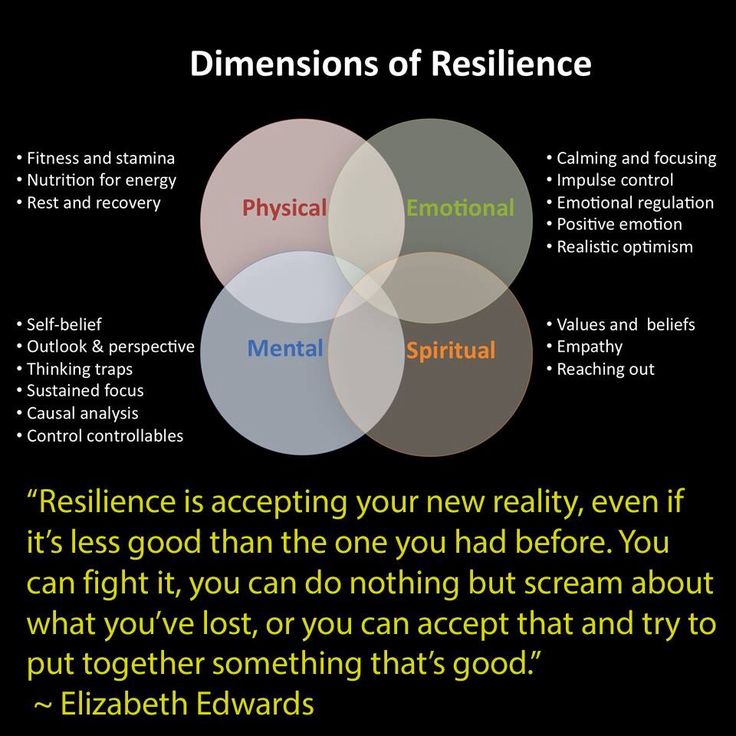
A change in the level of emotional stability of a teacher in a real pedagogical process is possible only if the perception and awareness of himself, his life positions changes. Therefore, the choice of technologies and methods for increasing the emotional stability of teachers depends on the characteristics of the specific activities of those who need help. nine0005
Literature:
- Ashikhmina OA Emotional stability of educational psychologists at different stages of professionalization: diss. cand. psychologist. nauk.– M.: MGPPI, 2017.– 219p.
- Vasilyeva O. S., Filatov F. R. Psychology of human health: standards, ideas, attitudes: Proc. allowance for students. higher education, institutions. - M .: Publishing Center Academy, 2018. - 352 p.
- Kuryshova L. A. Emotional stability as an important component of psychological competence [Electronic resource. URL: https://www.b17.ru/article/imocionalnaya ustoichivost/ nine0149
- Order of the Ministry of Labor and Social Protection of the Russian Federation of October 18, 2013 N 544n “On approval of the professional standard “Teacher (pedagogical activity in the field of preschool, primary general, basic general, secondary general education) (educator, teacher)” (as amended on 05.














